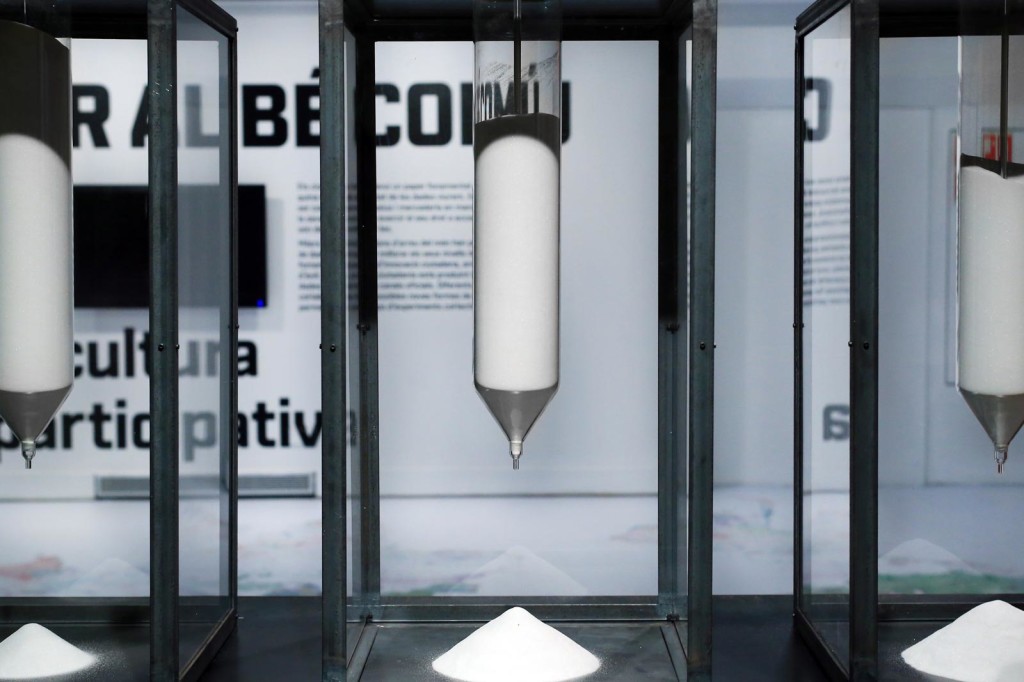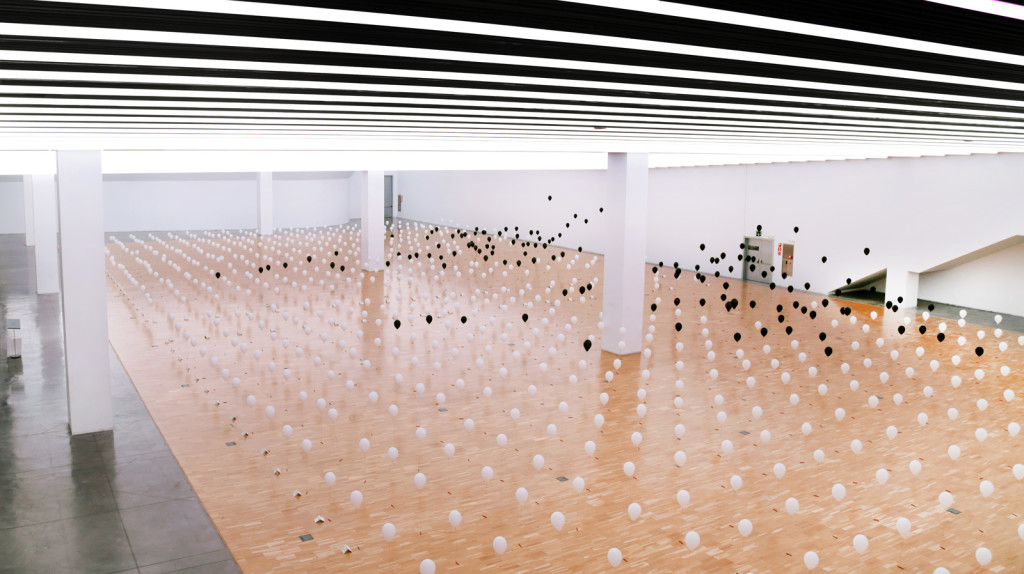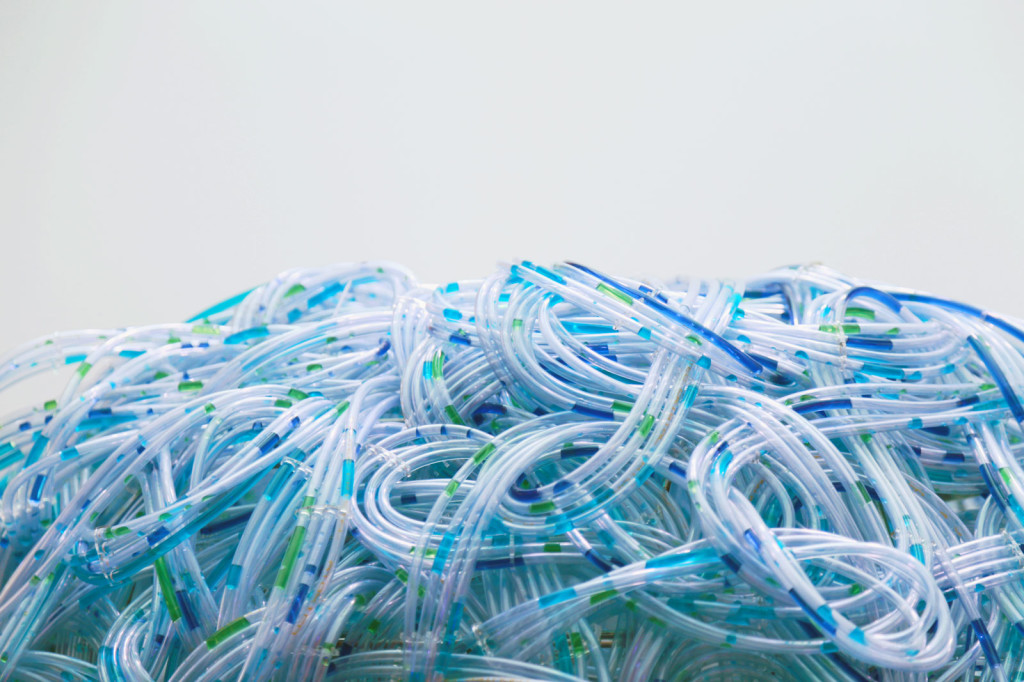We got to know the Domestic Data Streamers team at Sónar+D, the parallel event to the Sónar Festival of electronic music, art and technology which each year brings the very best innovations to Barcelona from all over the world, and which concluded its 23rd edition in June, with itinerant events scheduled over the winter to take us to next year’s event. Domestic Data Streamers came into being in 2013 with the intention of “creating new ways of communication through the orchestration of data in new storytelling formulas (data storytelling)”. On this occasion, Domestic Data Streamers collaborated with Spotify (the well-known music streaming platform) to create the Timekeeper installation, which can read data in order to recognise the musical preferences of users and choose a song or a track unknown to them but certain to please them, having detected their taste in music from data acquired. By asking users to express a desire associated with their favourite song, Domestic Data Streamers display their interest in seeking to discover whether there is a correspondence between musical taste and lifestyle choices.
When data is linked to human experience, the distance between perceived reality and actual reality becomes smaller (as Domestic Data reminded us during their live talk, according to Richard Saul Wurman: “We truly understand something when we can relate it to something we already understand”). We met them and asked various questions in order to find out how they manage to turn data interpretation into meaningful experiences for people.

Diana Di Nuzzo: What is the philosophy of Domestic Data Streamers’ work and how you choose the institutions you work with?
Nicola Montaretto Marullo – Domestic Data Streamers: We create meaningful connections between information and people. This is The sentence that better describes our philosophy. We believe in making information affordable, understandable, and interesting for everyone. We are a design firm that enables organizations to communicate through data storytelling by bringing emotions to data, simplifying information, and generating knowledge.
We believe in the power of people and the power of diversity. This is the reason why we are a team coming from 5 different countries, 3 continents, speaking 7 different languages and from very different backgrounds such as design, art, psychology, anthropology, engineering and science. We love to work with all the organizations that are interested in getting them known by spreading and democratizing their knowledge.
Diana Di Nuzzo: What is the next project you guys are working on and what is your goal for this year?
Datastreamers: We cannot explain in details what we are working on but we can say that it’ll be BIG. We are working together with a worldwide known organization and we’ll bring our work (once more) across the ocean. We are very excited and we can’t wait to see -and show- the final result. In addition to the ‘big one’, we’re working on other projects, and experimenting and prototyping ‘like crazy’ at the same time.
The goal of this year is to keep on working hard. We are growing up, exploring new markets, ways of working, and collaborations that will enrich more and more our point of view and our projects. Once more, we can’t wait to see what the future holds for us.

How the new media has changed our way to perceive reality and what is your role in this society?
Everything has changed and keeps on changing, also the way in which reality is perceived. We have all already lived several digital revolutions and we’ll live others for sure. Things are becoming more and more digital and we need new tools to make all these complex things understandable. Sometimes we forget that the goal of information is to inform, not to be exclusive. The rise of data is ‘just’ another way in which evolution takes shape and data, because of its nature, is difficult to understand.
We cannot allow that the exclusivity takes hold and for this reason, in this increasingly digital scenario, our main role is to make people physically feel, touch and experience the importance of information and more concretely the meanings hided behind data. In other words, our goal is to develop a tool, a methodology, in charge of democratizing the always more oligarchic information environment.

How storytelling shapes our experience and how do you tickle individual’s emotional intelligence?
The practice of storytelling is the file rouge of all our projects. We always tell story in order to make our works closer to the people. Storytelling is widely used in marketing and communication, and its benefits have been extensively studied and proved. Despite this, we don’t use storytelling to make our product more attractive to our audience; we use storytelling to make our contents more affordable. As already said, information and data are complex things and we have to use all the weapons in our hands to make it both physically and emotionally closer to our users. Storytelling is one of those weapons, and probably one of the most effective.
Through which media you promote your work and how do you want to be seen?
We love considering ourselves as being ‘romantic’, and we are very happy when people come to touch by hands our works breaking the digital (screen) wall. This physical interaction is our main aspiration and it maintains us alive. A part from that, we understand the importance of maintaining contact with our friends and we keep a diary of what we’re doing using Facebook, Instagram, Twitter, and our brand-new webpage.
Domestic Data Streamers
images (cover 1) The Timekeeper – Domestic Data Streamers (2) Sand Falls – Domestic Data Streamers (3) Lifeline – Domestic Data Streamers (4) Food Waste Dialogues – Domestic Data Streamers









































